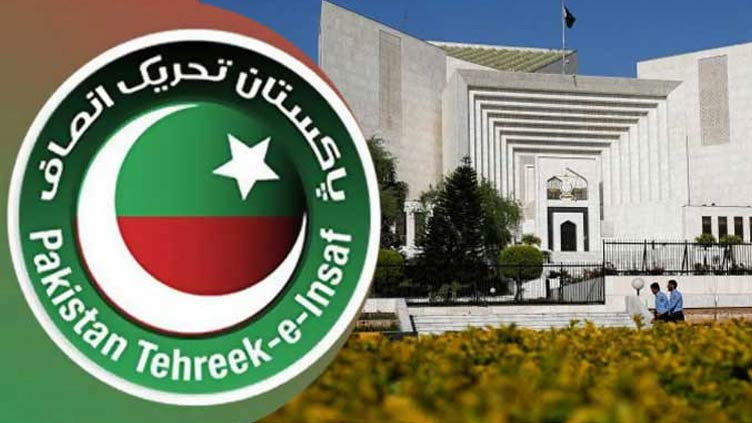The SC rejects the PTI’s motion to enforce the 39 reserved seats.

A request to uphold the Supreme Court of Pakistan’s previous ruling on the distribution of reserved seats to the Pakistan Tehreek-e-Insaf (PTI) based on 39 declared members of the National Assembly was denied.
Justice Muhammad Ali Mazhar questioned whether the Election Commission of Pakistan (ECP) had formally declared these 39 people to be part of the PTI during the hearing of the appeal before a constitutional bench of the Supreme Court. PTI’s advocate, Faisal Siddiqi, contended that even though these 39 members were recognized, the party had not received proportionate allocations of reserved seats.
The ECP’s Director General (Law) advised the bench that a methodology for seat distribution will be used universally and that no reserved seats had yet been assigned. The DG Law responded negatively when Justice Hasan Azhar Rizvi inquired as to whether other parties had been granted their allocated seats.
According to Justice Jamal Khan Mandokhail, PTI would be eligible for roughly 22 to 23 reserved seats out of a total of 80 general seats. Justice Mazhar bluntly questioned why, given that 39 of the PTI’s members had already been formally declared, the party had not been given its fair number of reserved seats.
The ECP’s attorney contended that the rule was being applied retroactively and that a party affiliation cannot be altered once it is stated in the nomination papers. He added that there was already a pending review petition on the subject.
Advocate Faisal Siddiqi cautioned that the Supreme Court’s integrity may be called into question if the court’s ruling is not followed.
The request to impose the PTI’s reserved seat distribution based on the 39 recognized members was finally denied by the constitutional bench, notwithstanding the grounds.A request to uphold the Supreme Court of Pakistan’s previous ruling on the distribution of reserved seats to the Pakistan Tehreek-e-Insaf (PTI) based on 39 declared members of the National Assembly was denied.
Justice Muhammad Ali Mazhar questioned whether the Election Commission of Pakistan (ECP) had formally declared these 39 people to be part of the PTI during the hearing of the appeal before a constitutional bench of the Supreme Court. PTI’s advocate, Faisal Siddiqi, contended that even though these 39 members were recognized, the party had not received proportionate allocations of reserved seats.
The ECP’s Director General (Law) advised the bench that a methodology for seat distribution will be used universally and that no reserved seats had yet been assigned. The DG Law responded negatively when Justice Hasan Azhar Rizvi inquired as to whether other parties had been granted their allocated seats.
According to Justice Jamal Khan Mandokhail, PTI would be eligible for roughly 22 to 23 reserved seats out of a total of 80 general seats. Justice Mazhar bluntly questioned why, given that 39 of the PTI’s members had already been formally declared, the party had not been given its fair number of reserved seats.
The ECP’s attorney contended that the rule was being applied retroactively and that a party affiliation cannot be altered once it is stated in the nomination papers. He added that there was already a pending review petition on the subject.
Advocate Faisal Siddiqi cautioned that the Supreme Court’s integrity may be called into question if the court’s ruling is not followed.
The request to impose the PTI’s reserved seat distribution based on the 39 recognized members was finally denied by the constitutional bench, notwithstanding the grounds.